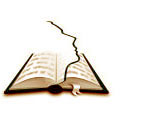|
 |
The Bible uses the expression, ‘Their worm shall not die, neither shall their fire be quenched.’ Isaiah 66:24 and also Mark 9:48. What does it mean? In Mark 9, these words are linked with the word hell. This would seem to imply an ever-burning hell or place of punishment? Please explain!
The word used for hell comes from the Greek word Gehenna. This word refers to the Valley of Hinnom just outside Jerusalem where idol worship used to take place, with sacrifices of children. |
God promised strong punishment for these activities, and by the times of Jesus, the once picturesque valley was used as a rubbish dump where dead animals and criminals were thrown. To avoid disease, fires were constantly burning there, which devoured the rubbish. These fires continued to burn until the work of total destruction was completed.
In Isaiah 66:24 it specifically says that these fires will be found on the carcasses. A carcass is the corpse of someone who has died. These are not living people who are burning in these fires. Isaiah 37:36 uses the word ‘corpse’ for carcass. Jeremiah 31:40 refers to dead bodies in translating the word for carcass. It is quite clear that nothing living is involved here. |
 |
The clearest way to understand the meaning of a Bible verse is to allow the Bible to be its own interpreter. Jeremiah 17:27 talks about God’s displeasure with the ongoing Sabbath breaking in Jerusalem and says that, if there is no reform, then the anger of the Lord will be as a fire, it shall devour and not be quenched. ‘I will kindle a fire in the gates thereof and it shall devour the palaces of Jerusalem, and it shall not be quenched.’ When the Bible talks about unquenchable fire, it means a fire that cannot be put out by anyone. It is unable to be quenched by human effort, but such fires do go out once they have ‘devoured’ what is in them. |
|
Here is another example. Jude 1:7. ‘Even as Sodom and Gomorrah, and the cities about them in like manner, giving themselves over to fornication, and going after strange flesh, are set forth for an example, suffering the vengeance of eternal fire.’ Sodom and Gomorrah are not still burning today. They were prophesied in the Bible to become as places of ‘saltpits and a perpetual desolation’. Zephaniah 2:9. In this verse it says they will be turned to ashes. 2 Peter 2:6. ‘And turning the cities of Sodom and Gomorrah into ashes condemned them’. This next verse, talking about the same event, calls it ‘eternal fire’. It was an event, it happened and it was finished. The fire and brimstone burned them up and the effects are for ever; they are now ashes and saltpits, a ‘perpetual desolation’. It is not the fire itself that is forever but the destruction caused by the fire,
The Bible gives no picture of a place of eternal torment with perpetual fires and pain for the lost. The Bible does indeed picture the destruction of the wicked by fire but those fires annihilate. The fires reduce to ashes. Even Satan will be reduced to ashes. The result is that there will be no more sin or sinners. God offers life to the obedient, but the lost are to ‘perish’. |
‘For God so loved the world that He gave His only beloved Son, that whosoever believeth on Him should not perish but have everlasting life.’ John 3:16. Here, to live and to perish are placed in contrast. To perish is not to live on somewhere else with a different kind of fearful life. It is to be snuffed out and gone up in smoke. Everything, both sinners and their pollution will be cleansed away by the fires of God. Last time the cleansing was by water in the Flood; the next time it will be by fire.
God has promised that He will then make all things new, and this is our hope. |
 |
|
<< Back | Page 1 | Page 2 | Page 3 | Page 4 | Page 5 | Page 6 | More >>
[ Home ][ About Us ][ Lonely Questions ][ Contact Us ]
Copyright © 2008 deathandbeyond.org.uk |
